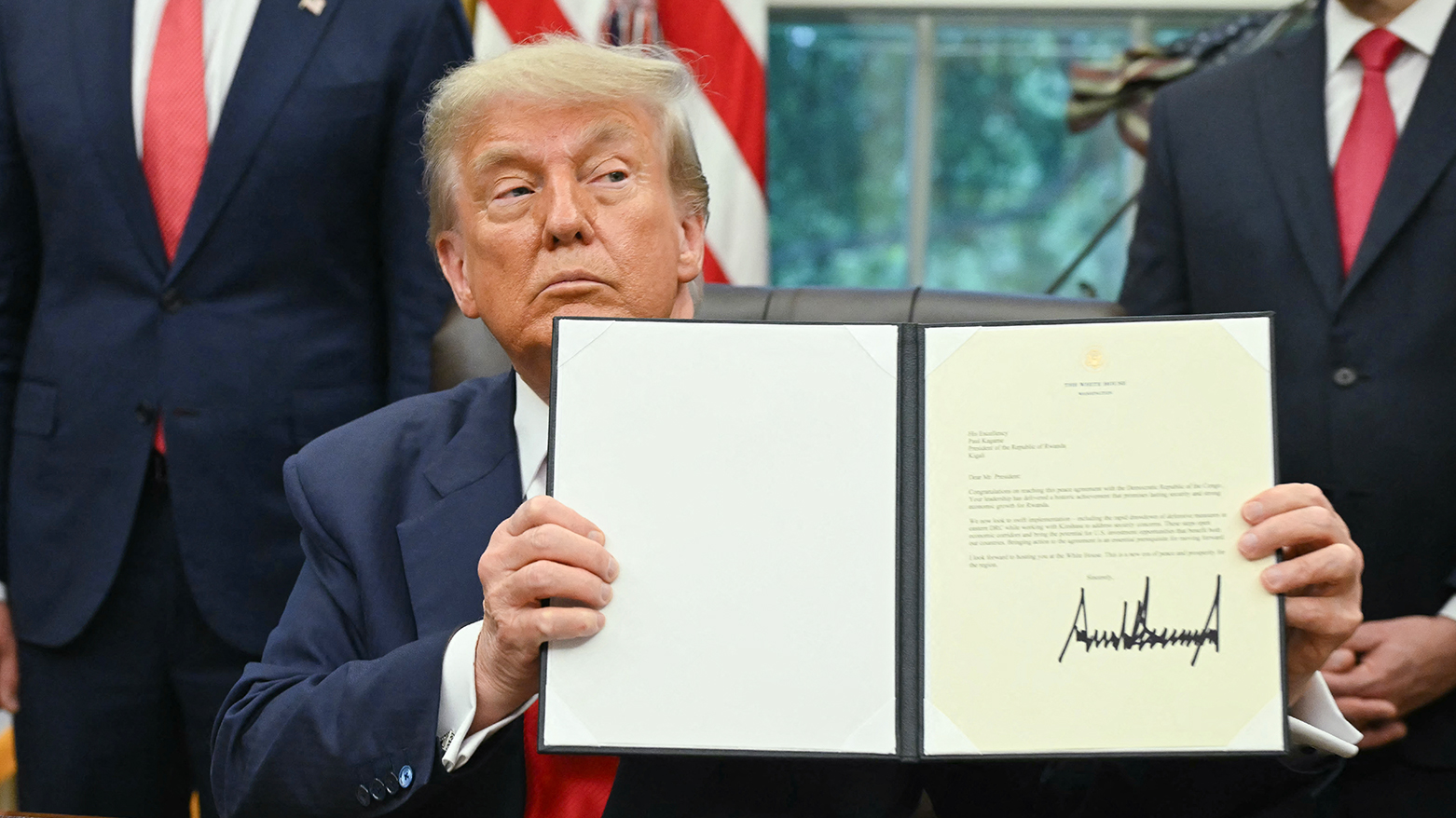US Officials Detail Syria Sanctions Lift and Future Engagement
US lifts Syria sanctions in historic shift after Assad's fall, aiming to boost reconstruction under new leadership. Treasury retains ability to target threats while opening economy. Move aligns with regional realignment after Iran-Israel war, seen as key moment for Mideast stability.

By Ahora Qadi
ERBIL (Kurdistan24) – The United States formally lifted decades-old economic sanctions on Syria on June 30, 2025, in a landmark policy shift aimed at fostering stability, reconstruction, and regional integration in the aftermath of the Assad regime’s collapse.
The announcement came during a press briefing hosted by the U.S. Department of State and featuring Ambassador Thomas Barrack, U.S. Envoy to Türkiye and Special Representative for Syria, and Brad Smith, Acting Under Secretary for Terrorism and Financial Intelligence at the Department of the Treasury.
'A President Driven by Results, Not Process'
Ambassador Barrack praised the strategic resolve of President Donald Trump and Secretary of State Marco Rubio in swiftly moving to support Syria’s new leadership, following the downfall of Bashar al-Assad’s regime in December 2024 and the ascension of President Ahmed al-Sharaa in January 2025.
“What’s unusual is you have a President who is driven by event diplomacy, not process diplomacy,” Barrack said. He compared Syria’s current transitional period to the early years of the United States after its own revolutionary war, arguing that the opportunity for Syrian rebirth must not be hindered by outdated sanctions architecture.
He described the sanctions as having fostered a “ghost culture of survival” and stifled initiative in Syria. “Syria needs to be given a chance,” he said, recounting Trump’s pivotal decision on May 14 in Riyadh, Saudi Arabia, to lift the sanctions following talks with regional leaders and President al-Sharaa.
Executive Order to Dismantle Sanctions Regime
Acting Under Secretary Brad Smith detailed the concrete steps taken by Treasury to dismantle the punitive measures. He noted that President Trump will sign an executive order rescinding all prior executive orders related to Syria sanctions while retaining the ability to target individuals and groups that continue to pose threats to regional stability—such as former regime officials, militias, and Iran-backed actors.
“The significance of this moment cannot be overstated,” Smith declared. “Today’s actions will end the country’s isolation from the international financial system, setting the stage for global commerce and investment.”
He added that Syria’s reentry into the economic landscape would be guided but not dictated by the United States, and that Treasury remains “clear-eyed” about the ongoing threats. “We are vigilant and ready to act if our interests or security are endangered,” Smith said.
A Vision Rooted in Regional Integration
Ambassador Barrack emphasized that this decision is not about nation-building, but about creating space for Syrians to determine their own future. He said the lifting of sanctions will empower the new Syrian government to protect and integrate diverse communities, including Alawites, Druze, and Kurds, and to address the legacy of conflict, displacement, and extremism.
Barrack called the shift “a window of opportunity never seen before” in the Middle East, especially in the wake of the Iran-Israel conflict and broader moves toward regional realignment.
“This is hand-in-glove with what’s happening across the region,” he said, referring to ongoing efforts to revive the Abraham Accords and forge new understandings with former adversaries. “None of this happens by itself.”
From Sanctions to Opportunity
Syria had been under escalating U.S. sanctions for decades, especially after the eruption of civil war and the Assad regime’s widespread atrocities. These sanctions targeted human rights abusers, Iran’s proxies, narcotics networks, and terrorist entities operating across Syrian territory.
But with Assad’s ouster and a newly established transitional government in place, the White House has moved quickly to seize what it views as a rare opportunity for meaningful change.
The briefing underscored that the administration’s policy is driven by both urgency and pragmatism. “We’re not confusing effort with results,” Barrack said. “We’re delivering.”
As Syria attempts to rebuild and reclaim its role as a historical hub of culture and commerce, Washington is betting that this bold step could be a turning point not only for the war-ravaged nation but for the wider Middle East.
